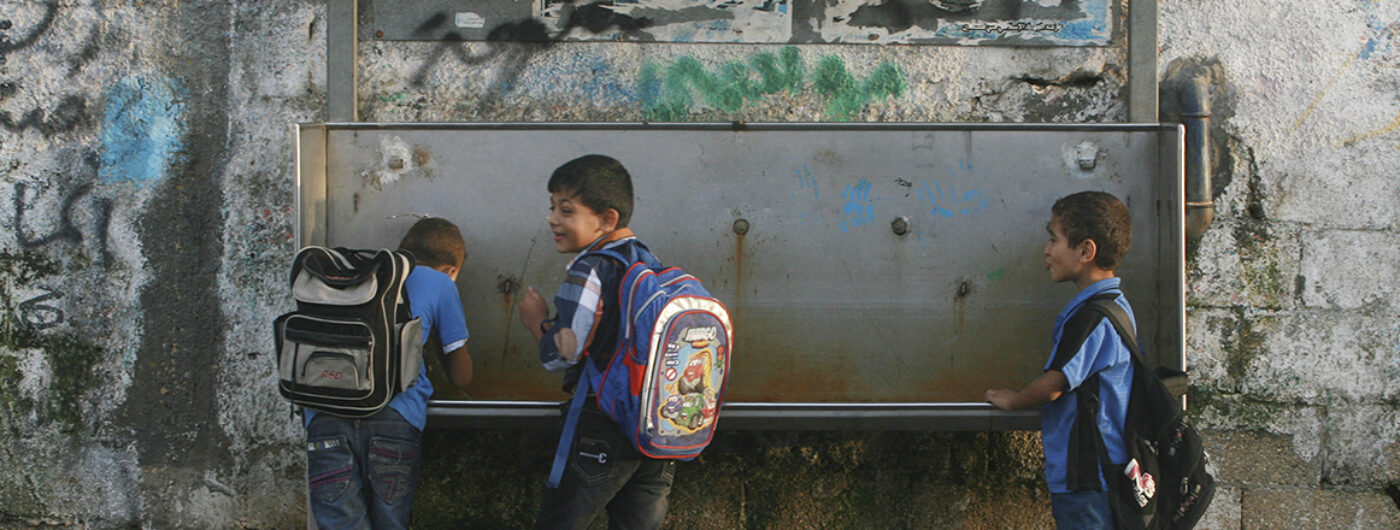
UfM Member States approve a region-wide water agenda to help secure access to safe drinking water for all
-
- If nothing is changed by 2050, water-related issues with an impact on agriculture, health, and incomes could lower the GDP of the Middle East and North Africa region by 6-14%[1].
- 3 out of 4 jobs worldwide are water-dependent [2], yet 50 million jobs should be created in the next decade to absorb the growing labour supply in the Mediterranean region.
- The Union for the Mediterranean (UfM) has led the development of a regional Water Agenda and a financial strategy to help achieve access to water for all.
Barcelona, 19 March 2019. The Mediterranean region is one of the 25 “hotspots” impacted by climate change [3] in the world. With a rapidly growing population, and more than 180 million people affected by water poverty, joining forces to address this common challenge is of utmost importance. To face this growing concern, and following the 2017 Valleta’s ambitious ministerial declaration, the 43 UfM countries have recently endorsed a Water Agenda and a financial strategy to help improve the access to safe water in the Euro-Mediterranean region.
On World Water Day, the Union for the Mediterranean emphasizes the need for regional dialogue to face common water challenges. Embodying the collective effort and benefit of regional cooperation, the UfM will organise a series of workshops across the region to present the Water Agenda and foster the exchange of best practices on financial strategies, notably on how to attract investments for the water sector. Consultations with UfM member states have been constant to ensure that the adopted Agenda responds to the needs of all countries and to the benefit that a regional dimension can bring to national efforts. The approach was also developed to ensure its success with appropriate safeguards on the availability of water resources while considering how these approaches can fit with national priorities.
Miguel García-Herraiz, UfM Deputy Secretary General for water and environment said: “the UfM Water Agenda aims to ensure access to safe drinking water as a fundamental human right, particularly for the most vulnerable. Throughout this regional approach, we also take into account a gender equality perspective, the active involvement of young people, transparency and improved accountability in the water sector. We must continue working together to truly deliver on our commitments and amplify our results.”
Policies and investments that can help UfM countries to achieve more water secure and climate-resilient economies, include better planning for water resource allocation, adoption of incentives to increase water efficiency, and investments in infrastructure for more secure water supplies and availability. Adopting a cross-sectoral approach has been a constant effort in the UfM’s endeavour, since most of the water-related challenges are intertwined. For example, agriculture accounts for 70 % of total global freshwater withdrawals, being a keystone for the entire agro-food supply chain.
The Water Agenda sets out a series of technical and financial recommendations to leverage investments and improve the access to water in the region. Recommendations are developed around four regional priorities for action: (1) Water, food and ecosystems, (2) Water, employment and migration, (3) Sanitary and hygiene conditions, and (4) Water and climate action.
For more information
UfM Water Policy framework for actions 2030
Water Agenda Financial Strategy
Source
[1] World Bank, High and Dry, 2016
[2] 2016 UN World Water Development Report

